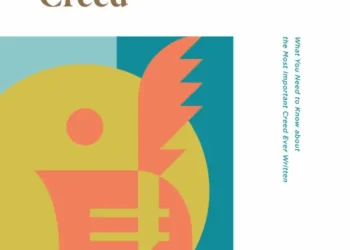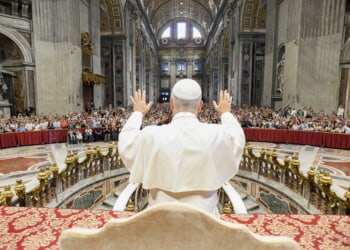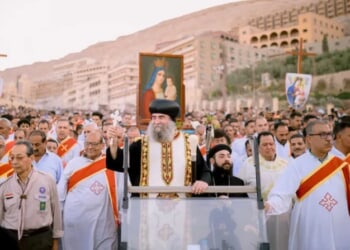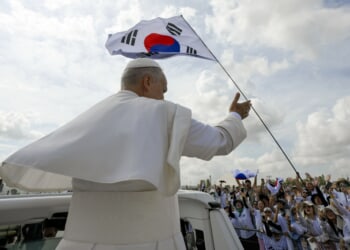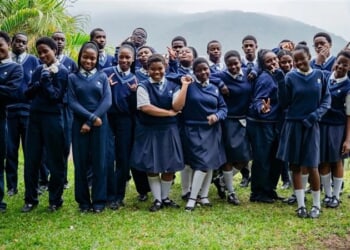Washington, D.C. Newsroom, Aug 8, 2025 /
12:38 pm
U.S. Secretary of State Marco Rubio said the Trump administration is “committed” to fixing an ongoing backlog in religious worker visas.
“We’ll have a plan to fix it,” Rubio said in an Aug. 7 interview with Raymond Arroyo on EWTN News’ “The World Over with Raymond Arroyo.”
The interview comes after U.S. Citizenship and Immigration Services released a report showing widespread fraud in its permanent residence program for unaccompanied minors, which led to the backlog in issuance of visas to migrant priests and religious.
Rubio said the administration is currently working to create a “standalone process” for religious workers, separate from other competing applicants — such as from the juvenile program — to the employment-based fourth preference (EB-4) category of visas.
“In many cases, what you were finding is you had [a certain] number of people you were going to allow a year, [and] you prioritized people that were coming here from a different migration [background] and it came at the price of some of these others,” he said of the category.
“I’ve been in touch with a number of our cardinals here in the United States and bishops about that as well,” Rubio continued, “and it’s not only the Catholic Church — I mean there are other places that are being impacted, but we’re trying to streamline that process.”
Each year, Congress decides how many green cards — visas that grant permanent residence in the U.S. — may be made available per year.
These green cards are divided into categories based on various factors, including employment or relationship status to U.S. citizens. The EB-4 category can distribute approximately 7.1% of all employment-based visas.
Typically, religious workers enter the U.S. on R-1 visas, which have a five-year limit. In the meantime, religious workers hoping to stay in the U.S. apply for visas in the EB-4 category.
Since juveniles were added to the category in 2023, the wait time for green card applications has been extended to at least five years and seven months, meaning some religious workers face the possibility of having to return to their home country before their application is processed.
When asked whether he would be in favor of extending R-1 visas for religious workers while their green card applications are pending, Rubio said the administration is “looking at every option.”
“We don’t want to read headlines that some Catholic church had to close because it couldn’t get their priests here or some order closed because some nun couldn’t get here,” he said. “We’re not interested in that, and that’s not really the aim here.”
“We know it’s an issue and we’re committed to fixing it,” he concluded.
Federal lawmakers have introduced a bipartisan bill, the Religious Workforce Protection Act, to prevent U.S.-based priests from being forced to leave the country. The U.S. Conference of Catholic Bishops (USCCB) has urged the government to pass the bill.
USCCB President Archbishop Timothy Broglio described the measure as “desperately needed to ensure communities across our nation can continue to enjoy the essential contributions of foreign-born religious workers who lawfully entered the United States on a nonimmigrant religious worker (R-1) visa.”
(Story continues below)




